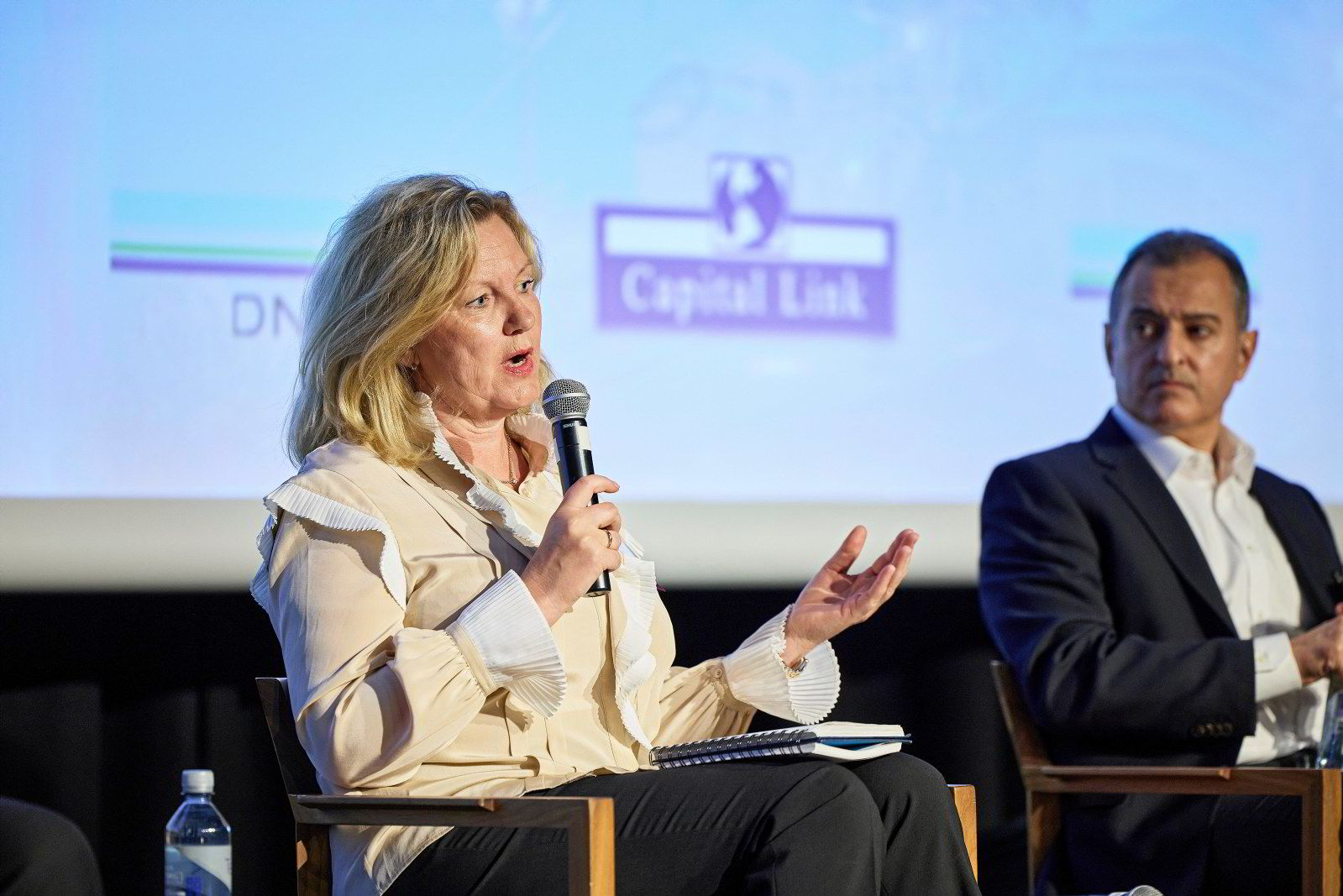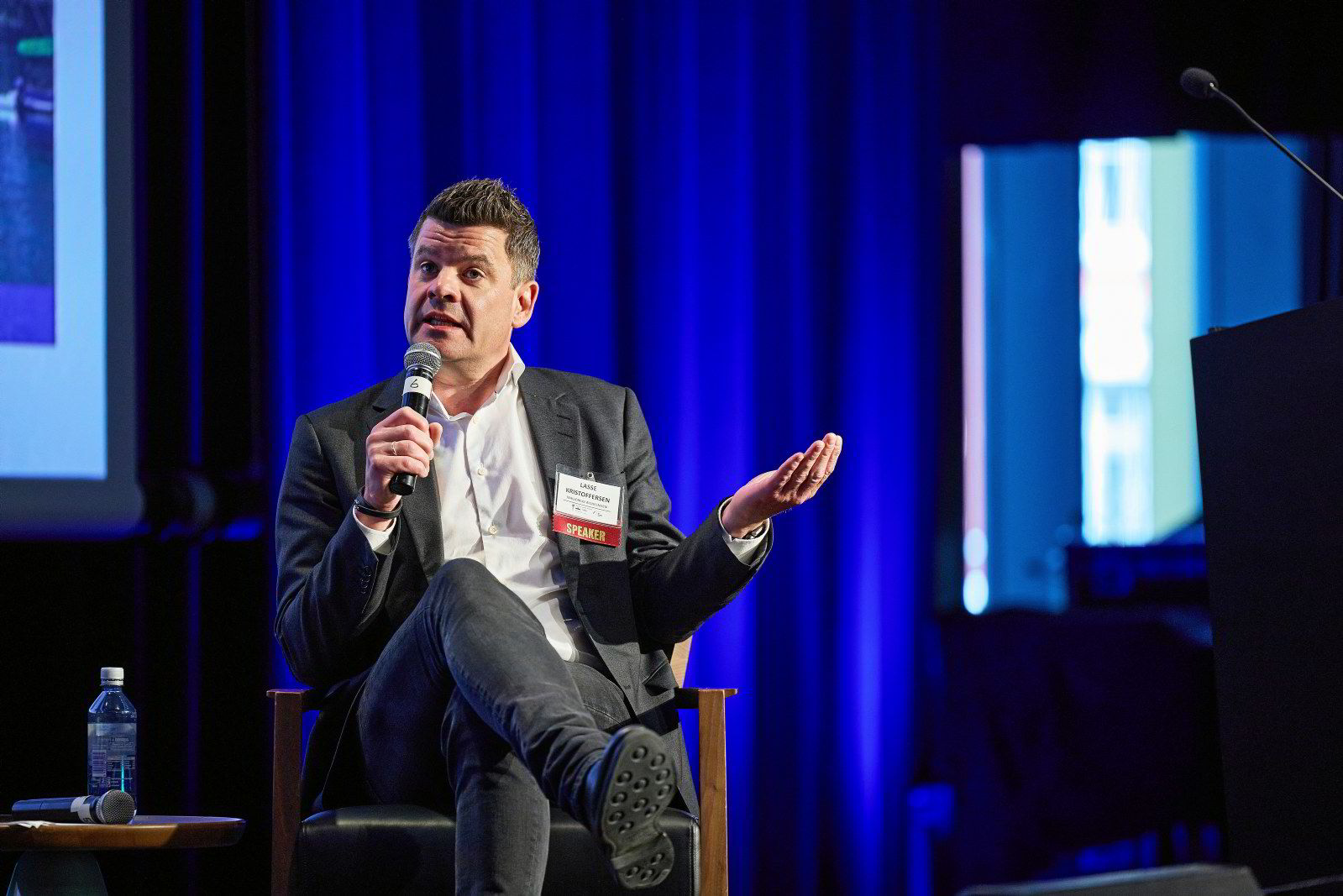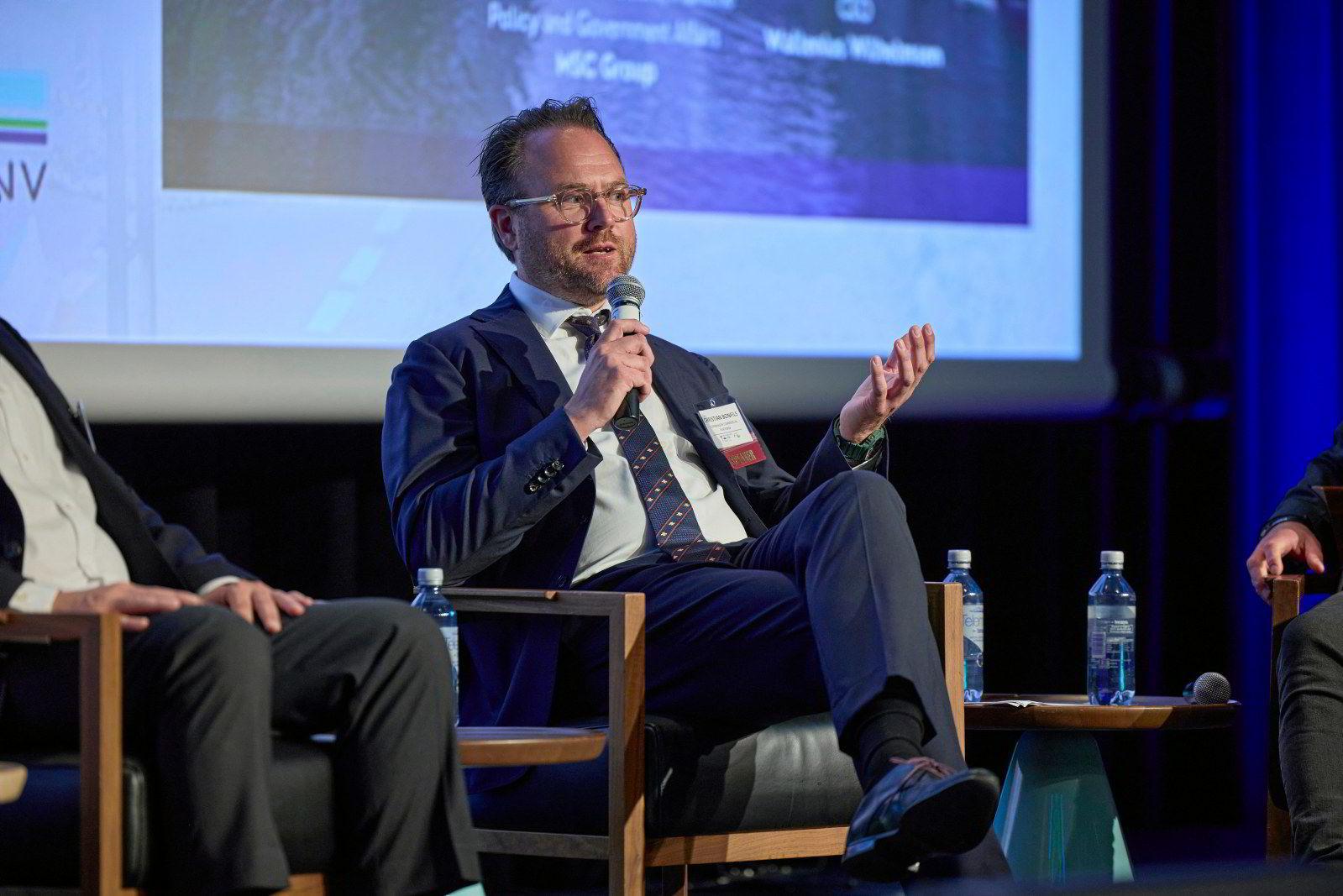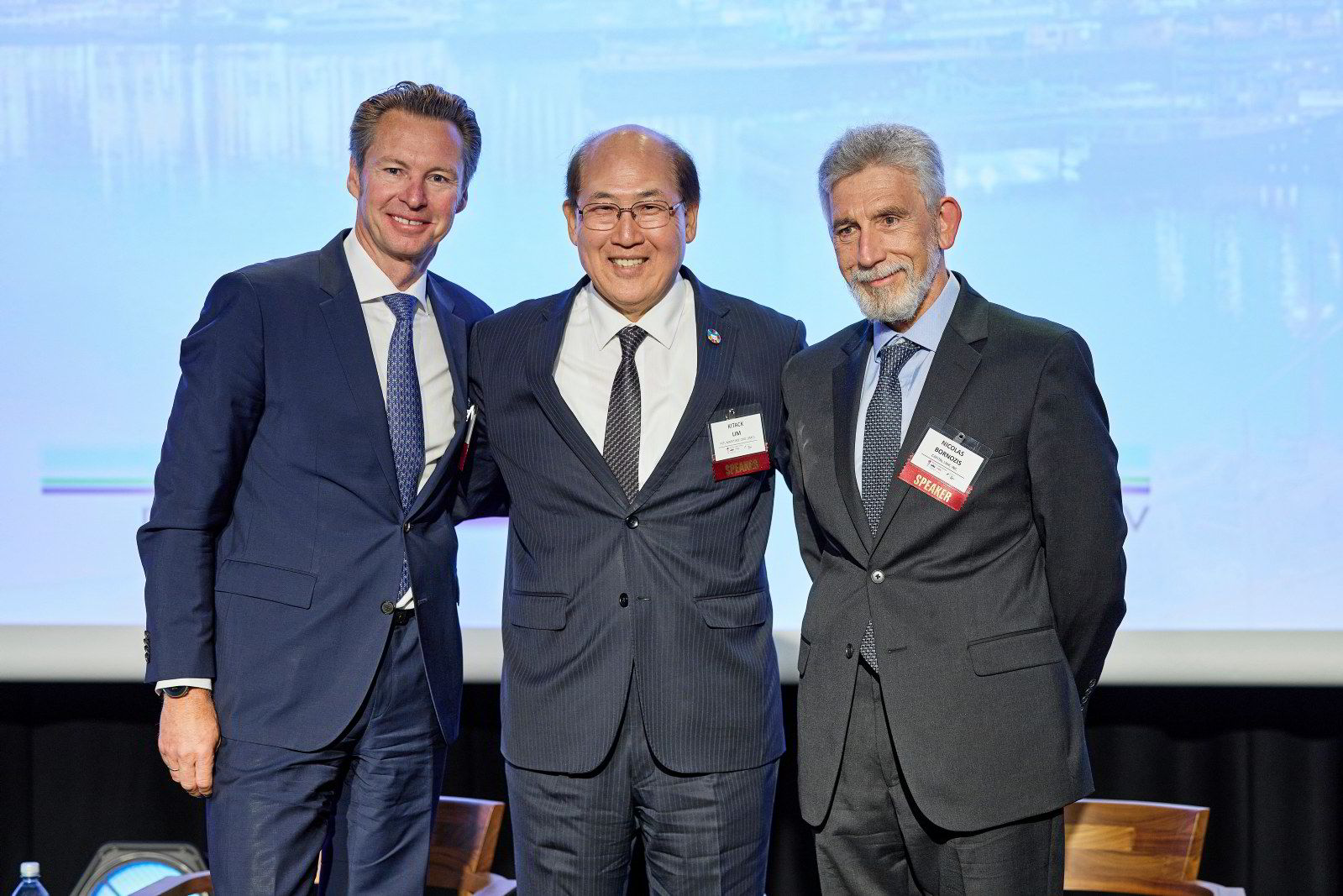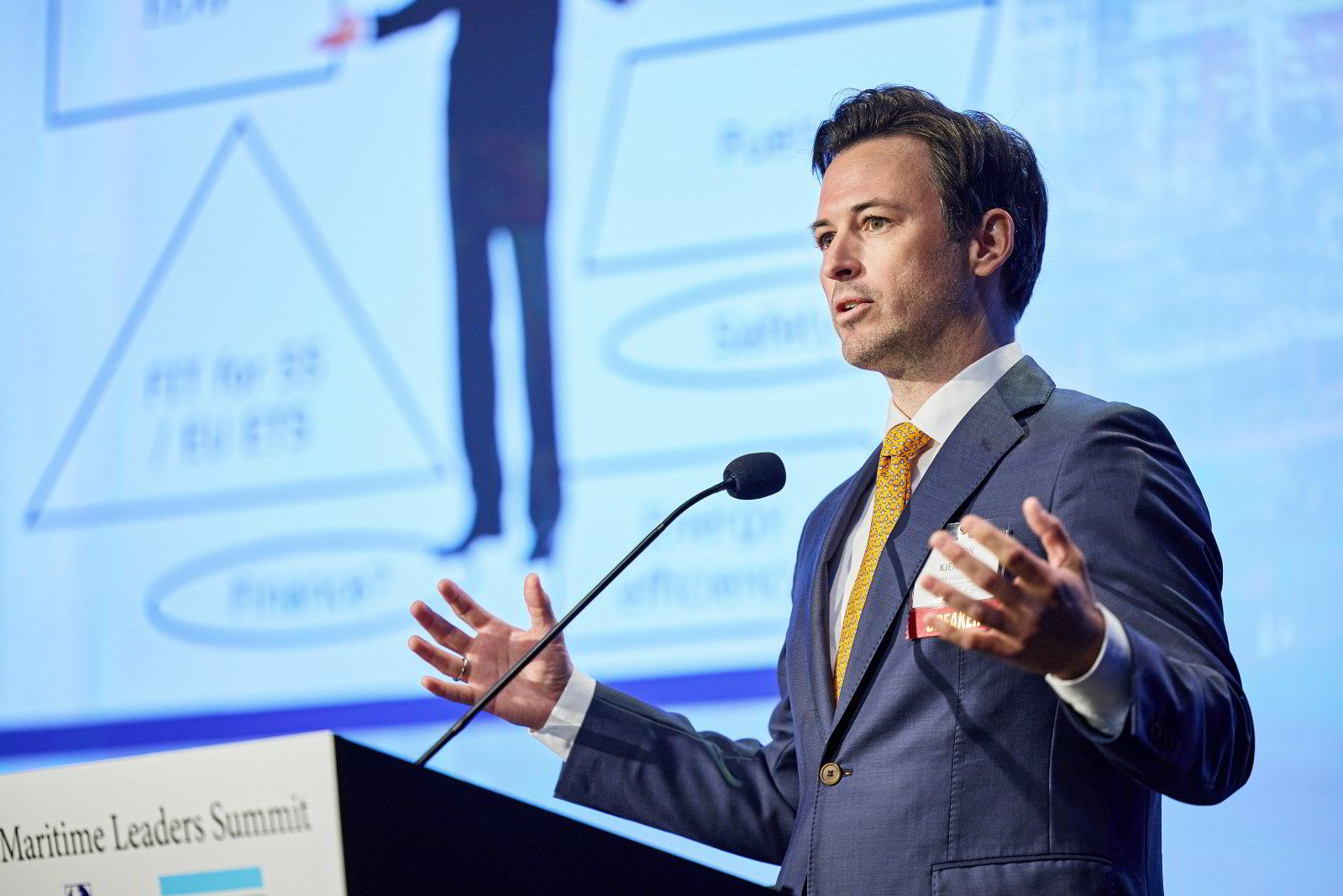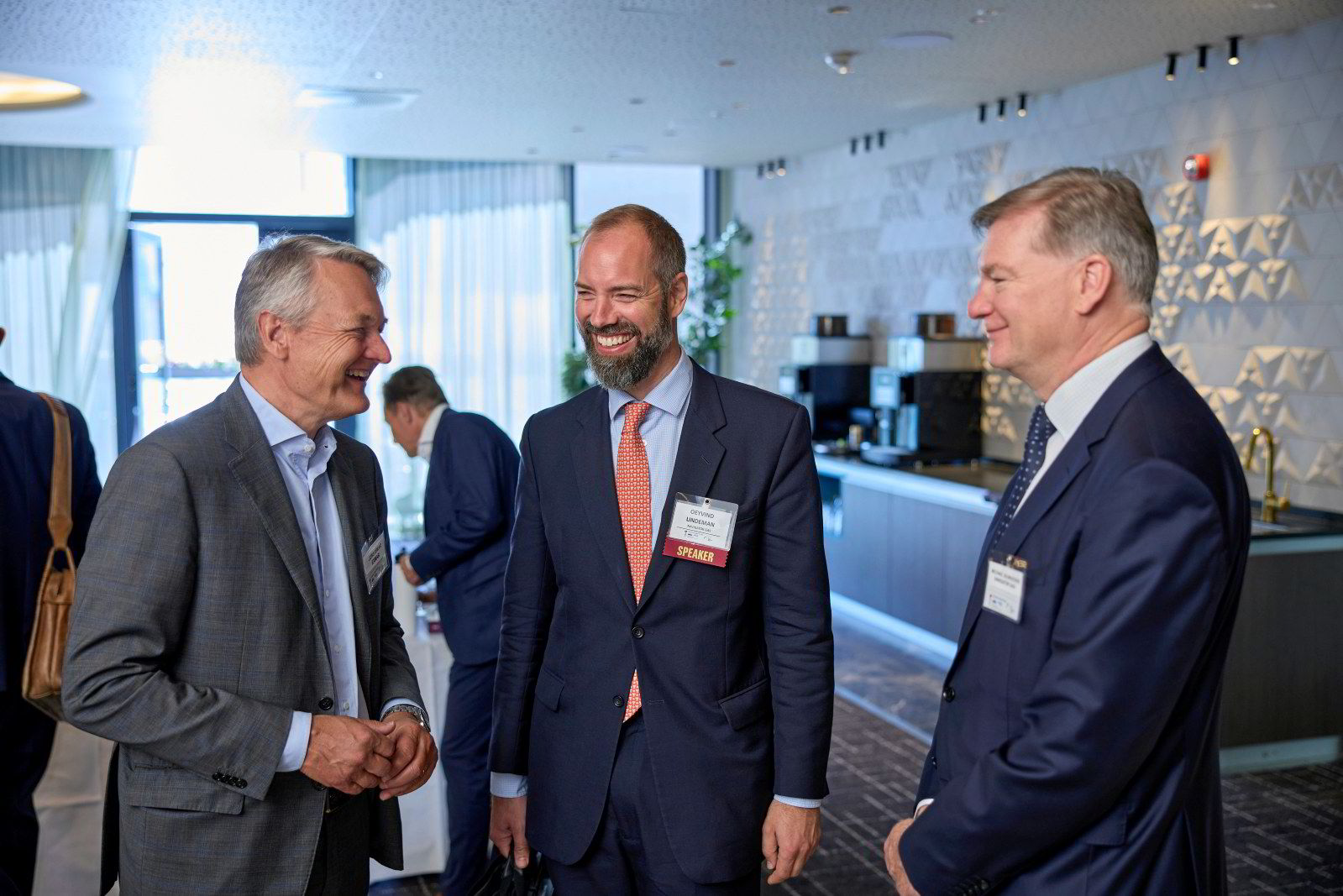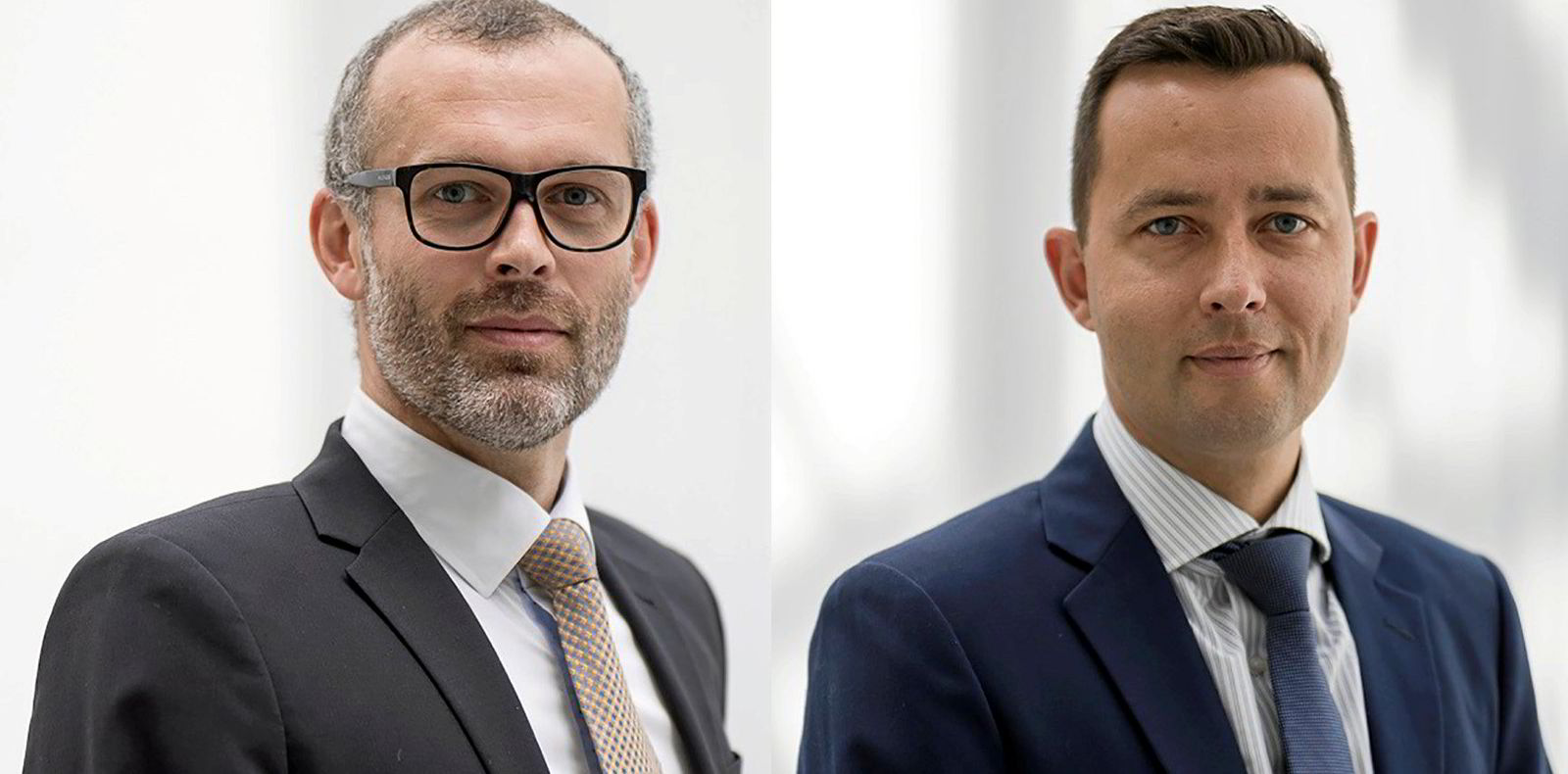How do you change an industry whose age-old commercial structures are a barrier to change?
That was a quandary that a panel of shipping industry executives pondered at the Maritime Leaders Summit, a conference organised by Capital Link and DNV during this year’s Nor-Shipping event in Norway.
Copenhagen Commercial Platform chief executive Christian Bonfils pointed to a variety of aspects in shipping contracts that prevent incentives to operate more efficiently.
“No one is really incentivised to improve,” said the executive, whose company is a commercial management platform that aims to cut emissions.
“I think by changing the contracts, we can do quite a lot. And I think collaboration is more than just talking about it, but we need to have that implemented into contracts.”
Lasse Kristoffersen, chief executive of Norway-based car carrier operator Wallenius Wilhelmsen, said shipping is not structured for transition.
He pointed to the industry’s many layers of shipowners, charterers and managers, none of whom are incentivised to change.
“And that’s why owners like ourselves and others really have a responsibility to orchestrate that,” he said.
But the industry’s upcoming inclusion in the European Union Emissions Trading System, which will require shipping companies to pay for carbon allowances, is an important change.
Now, Kristoffersen said, carbon transforms from something to report to something transactional.
“That will completely change how we think around carbon,” he said.
With EU emissions trading on the horizon, Wallenius Wilhelmsen is starting to sell carbon emissions reductions to customers.
“One of the big barriers in this industry is to create commonly trusted available data on carbon so we can transact on it,” he said.
Ingvild Saether, chief executive of shuttle tanker and offshore vessel owner Altera Infrastructure, suggested that what needs to change in shipping is its commoditised structure.
“I think we need, for the transition that we need to go through, to think about it more in industrial terms,” she said.
The executive said that it remains very difficult to get shipowners, charterers, financiers and technology aligned, despite the need to look beyond quarterly reporting periods and on a more long-term basis.
Bud Darr, executive vice president for maritime policy and government affairs at shipping giant MSC Group, said the industry has to be directly engaged with the energy sector to make sure producers know that shipping will buy greener fuels when they are available.
“I think energy providers have to be part of the mix on this collaboration,” he said.
“And they have challenges when they get in the same room together sometimes, because of competition concerns. But without them being part of the solution set here, it won’t work overall.”
